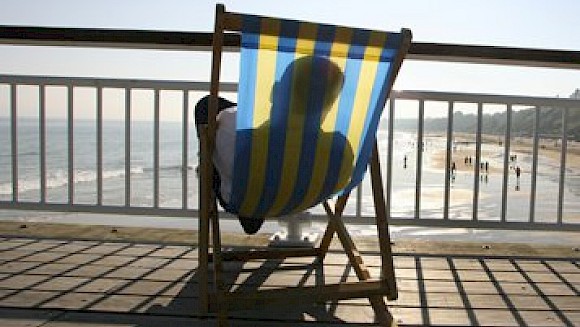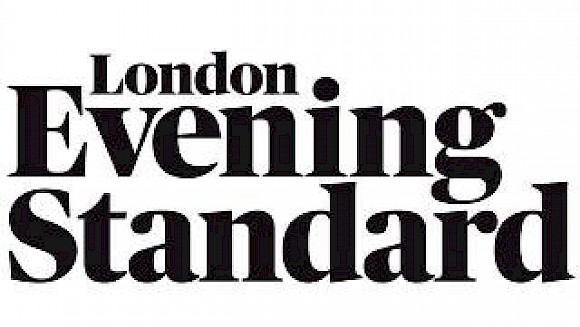Milliyet – Newspaper
Worldwide famous performer and teacher Özgen came to Turkey as a guest of Oriental Istanbul and was interviewed by the journalist Pelin Cini.
Journalist : Pelin Cini
Translation : Feyza Howell
“On stage, I play both male and female parts”
Köçek(Male bellydancer) Özgen, who lives in London and teaches belly dance in numerous countries: “Despite their continued unease about me being a male belly dancer, my family do support me. They simply pretend not to know.”
You know how according to some self-help books, ‘There is nothing called luck; you make your own’. That was how Özgen and I met. Since I’d seen Caner Alper and Mehmet Binay’s film entitled Zenne, I’d wanted to interview a real life male belly dancer. Help came in the form of a phone call from Japan: Mika Funakoshi, a journalist working on an article on male belly dancers, told me her editors had recommended she contact me. She wanted talk to someone who’d watched the film 50 times, and flew over here from Tokyo. At the end of our meeting she asked, “Do you want to meet a real life male belly dancer?” Last week, Funakoshi, Özgen and I got together in Beyoğlu. Özgen (his stage name; he prefers not to reveal his surname) is a highly popular dancer in Japan. In actual fact, he’s highly popular in numerous countries. He performs and teaches belly dance in the USA, in Spain, in Argentina and the UK. We spoke about how he got into dancing, his monthly small-scale world tours and the “How can a man belly dance?” cliché.
-Let me firstly ask you what brings you to Istanbul, as you live in the UK.
I was invited by Oriental Istanbul to teach as part of their Hıdrellez[2] festivities. The students came from Germany, Japan, the UK and Mexico. The package included dance lessons in both Romany and oriental styles, visiting Istanbul and dancing on the streets of Edirne.
-Will you tell us about how you got started?
I’m originally from Cyprus: my mother is a housewife, my father an environment engineer. I’m one of two children [I have a brother /sister]. I grew up in a matriarchal family. My father’s a quiet man. I was shy and different as a child. I used to listen to opera at home when boys my age were playing football on the streets. I wrote, poems mostly. Both my uncles are painters. I may have taken them as role models. Their creativity inspired me; in any case, I, too, must have been artistically inclined…
-How did you discover your talent for dance?
My family decided to send me to folk dance courses when I was at nursery school. I wasn’t that good at learning folk dance; I happen to be dyslexic. But I was always placed right at the front due to my height. That must have been when I realised I enjoyed being on stage, loved the applause, and realised there was nothing better. I continued dancing after the folk dance course, but no longer took formal lessons. I learned all by myself. There was no Internet at the time. I’d find dance CDs, and dance watching the TV: flamenco, salsa, or oriental… Whatever I could find.
-We’re not used to male dancers; didn’t your family ask you to find a different pastime?
Absolutely they did! Even I myself found it odd. I didn’t belly dance at first. I was firmly against males ‘wiggling’. My father didn’t interfere, but my mother tried her best to change my mind; I simply ignored it. I did my degree in radio and TV, again guided by my mother. I went to the Eastern Mediterranean University, where I founded a dance troupe; there were 22 of us. We taught ourselves by watching videos on the Internet. We then began to perform. My mother was proud of seeing me on stage, but still hasn’t stopped saying, “Son, come back to Cyprus; marry and raise a family!” She wants me to have a more steady lifestyle, not that’s not really possible.
-You were a member of the Sultans of the Dance…
A friend told me about the auditions for a troupe in Istanbul just after I’d finished university and I leapt at the chance. I was a permanent member of the troupe for five years. I must admit I wasn’t one of the best; I’ve even been told, “You wouldn’t be here if you didn’t look good, you haven’t got much aptitude”. That one sentence still rankles. All my life I’ve fought those demons. To this day, I refrain from using too much stage make-up or spending a lot of time with my hair; I want people to watch my dance, and not my face.
-What made you decide to move to London?
I was bored once more. I danced with Tolga Han for a while after Sultans of the Dance. We tried it for a while but didn’t get on that well. I thought I might go to London and just try my hand at something different. Waiter, barman, whatever. I didn’t have that much in the way of savings either; I stayed with friends, and couldn’t get any work not matter how much I tried. Then I saw just how popular belly dance was in the UK. They only learn the Arabic style, which they love. Women between 30 and 60 pay huge amounts to go to dance schools. I applied to one of those courses and began to teach.
-Now you’re famous and travel round the world. You teach people in so many countries. How did you get to this point?
My greatest distinction is my own style. I could have taught salsa and tango, but Argentinians and Spaniards teach these forms of dance anyway. So I had to present something that was ours. Egyptian was the only one style that London knew of at the time. That was what they danced; they didn’t know the Turkish style. That’s what I offered. Learning belly dance from a male teacher was a novelty, obviously. Let me explain the difference: Arabs don’t do any floorwork; their dance is much more straightforward. Our style, on the other hand, is full of floorwork, head slides and belly shivers. Ours is seductive; it’s a dance form that kindles desire and energises the viewer and the dancer alike. Our costumes are more revealing, too. All this was quite appealing; they loved it. The classes I taught began to fill up, and then there were more offers from other schools, and eventually invitations began to arrive from other countries as guest teacher. Nowadays I live out of a suitcase. I have a place in London, but I rarely get to see it. I’ve frequently woken up and wondered which country I was in just then. My life usually is spent between the USA, Japan, the UK, South America, Spain and France.
“I won’t even dignify the question, ‘Are you gay?’ with a response”
-You’re both male and female on stage. This comes up on countless comments I’ve read about you on the Internet. This nature of yours that is above sexuality must be fascinating…
On stage, I am male at times, and female at others, and sometimes neither… When I dance a Romany number, for instance, I’m totally macho in a red shirt and a pair of black trousers… Then I dance an oriental number in a cut-out outfit that reveals the belly. This is a huge surprise for the audience. So, in that sense, my show’s target audience is not restricted males or females.
-Does this duality spill into your private life? I’m sure you must have faced the question countless times, indirectly at the very least….
My sexual orientation does arouse curiosity; people do ask if I’m gay. What’s the point of replying? My job is to dance; the rest is no one else’s business. All I will say is this: the idea that ‘men don’t belly dance’ is a tired old cliché. It’s the same all over the world. If they persist, my answer is, “If you’ve watched me on stage in an oriental costume, see me in my daily life first before making your mind up.”
“My Turkish students disappoint me”
-It’s often said that women learn to belly dance to seduce their husbands at home. Is there any truth in this?
There are women who come to classes with that objective in mind, but most people take belly dance up to unleash the femininity they have to suppress in their daily lives. Work makes women tougher, more masculine. You’re having to compete with men. How many women have the time to nurture their feminine side these days? I’m not talking of wearing heels. I’m talking of being a delicate, emotional, and graceful woman. The lessons help them rediscover that side. They arrive wearing a two-piece suit and a sulk, and turn into sexy women bending gracefully, their faces brightened up by smiles.
-Do you have male students as well?
Indeed I do. At first they’re a little diffident, but once they see me on stage, they’re more comfortable with the idea of joining in. I’ve been fortunate in the looks department, and they like the way I look, and want to be like me.











